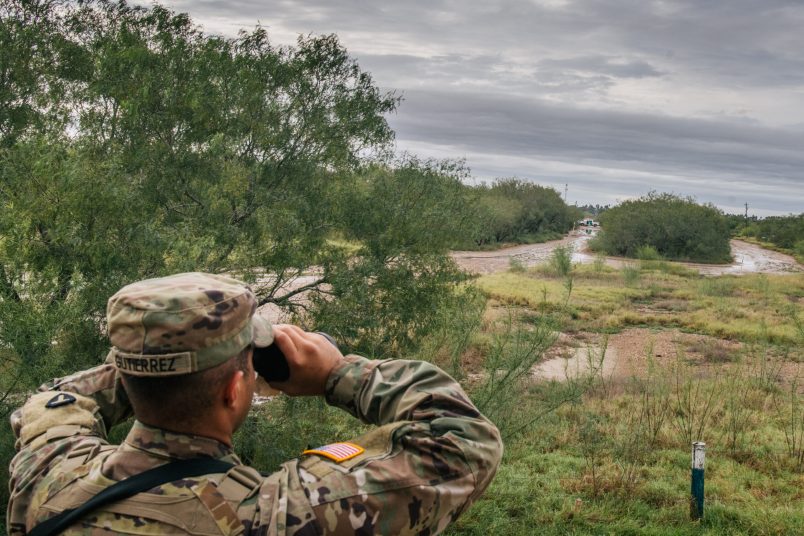The Supreme Court allowed the Biden administration to cut concertina wire blocking federal agents from accessing parts of the U.S.-Mexico border, overruling an appeals court decision which sided with Texas state authorities in blocking federal access.
The court granted the Justice Department’s request in a 5-4 decision, with Chief Justice John Roberts and Justice Amy Coney Barrett joining the three Democratic appointees. Per the ruling, Border Patrol agents will be able to cut the razor wire until the case is resolved.
It’s a victory for the Biden administration in one of three court cases over a fundamental issue: Texas’ ongoing attempt to use state law enforcement to both police the international frontier, and to block the Biden administration from doing so as well.
The Supreme Court did not offer a reason for why it had sided with the Justice Department. The remaining four justices said that they would have denied the request.
The concertina wire dispute erupted amid Texas’s broad-based attempt to enact its own border and immigration policy separate from that of the Biden administration. Called Operation Lone Star, the bid is intended to be in violation of standing Supreme Court precedent, which upheld in a 2012 case the federal government’s sole authority over the international border.
But Texas, under Gov. Greg Abbott (R), has tried to have it both ways: criticizing the Biden administration for supposedly lax border security, while arrogating to state law enforcement the right to construct border barriers, arrest undocumented migrants, and, potentially, deport them.
Using state law enforcement to arrest migrants on immigration charges and using state resources to deport them would violate that 2012 decision, and has already caused a standoff between Texas and federal law enforcement.
As part of Operation Lone Star, members of Texas law enforcement and the state national guard began to lay concertina wire near the border town of Eagle Pass. Federal agents cut the wire to restore access to the border, and Texas sued to block more cutting.
The Fifth Circuit issued an emergency injunction last month siding with Texas, which banned the federal government from “damaging, destroying, or otherwise interfering” with the concertina wire fence in the area.
Now that the Supreme Court has vacated that order, federal agents can resume cutting the razor wire until the broader question of whether the barriers are permitted is resolved.
Two others cases between the Biden administration and Texas over the issue are ongoing. One focuses on inflatable barriers that Abbott ordered installed within the Rio Grande River; another case has to do with statutes that Abbott signed into law last month creating a state-level immigration crime while giving state judges the power to deport undocumented migrants.
As the cases have gone on, Abbott has upped the ante. This month, Texas National Guard members blocked U.S. Border Patrol agents from gaining access to the border. That has taken place amid reports of migrants drowning as they make the treacherous crossing; Mexican authorities inform federal Border Patrol agents of migrants in distress; federal agents have then been blocked as they attempt to respond.
The 5th Circuit order included an exception which allowed Border Patrol officers to cut the wire in medical emergencies. The Biden administration said that Texas was violating that provision.







It was 5-4. Four justices of the Supreme Court apparently do not recognize the validity of the Supremacy Clause (which should be obvious to anyone who reads it). That should be the headline.
What, no shootout?
Fuck Texas. All hat no cattle.
Already a win for the disinfo propaganda. They pulled this shit in the winter when numbers would be likely be naturally lower, so they’ll claim it was because TX took control, and they will now go fucking ballistic over the natural spike in spring, claiming that it’s a direct result of the feds and Biden taking back control.
I’m in Texas and I disagree. This plays like a Biden win and an Abbott blink. And the scumbag TX GOP racists are going to scream about border influx no matter what, facts be damned.